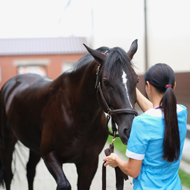Framework published to prevent vaccine shortages
The VMD has identified four strategic themes to tackle vaccine availability.
The Veterinary Medicines Directorate (VMD) has issued a cross-sector framework, which it says could tackle vaccine supply issues and promote innovation in the animal sector.
The framework proposes a five-year plan to address supply and demand, and has been created through consultation with stakeholders across the animal health sector.
Veterinary vaccines are important not only to animal welfare, but also to public health, food security and economic resilience. Their One Health implications also links them to efforts to challenge the threat of antimicrobial resistance (AMR).
Despite this importance, the VMD reports increasing concern over the past two years about vaccine availability in the UK.
It says that the existing model generally operates on a 'just-in-time' basis for both manufacture and supply. A new framework suggests a resilient, 'just-in-case' approach that would prioritise preparedness.
Consultations suggested four integrated themes which have informed the structure of the framework. The VMD has outlined the workstreams and activities required to approach these themes.
This work is expected to involve collaboration from stakeholders across the sector, who must agree ownership, governance, deliverables, timelines and key performance indicators.
The first theme has been titled 'Work in Partnership', of which the creation of a five-year plan forms a part. Stakeholders would be asked collaborate internationally towards the shared goal and support multilateral agencies. This runs through the three other themes devised by the VMD.
One of these themes will aim to 'Improve Supply and Uptake'.
This would seek to safeguard the existing supply of vaccines while facilitating the sourcing of alternative products. It also hopes to improve supply chain transparency, address knowledge gaps and enhance market pull.
The third theme, 'Support Innovation', hopes to facilitate the production of new products to fill therapeutic gaps.
Stakeholders would first collaborate to identify the relevant market needs. This will inform investment into vaccine research and development, and also facilitate new innovations.
The final workstream is called 'Review Manufacturing Landscape'. This is expected to address knowledge gaps and improve flexibility in the production of vaccines.
This framework is to be developed into a five-year, multi-stakeholder action plan, that will be coordinated by the VMD. An action plan is expected to be published within the next 12 months.
Christine Middlemiss, chief veterinary officer, said: “Vaccines are essential to prevent disease in our livestock and companion animals.
“I welcome this strategic approach to support our vets and animal keepers to have access to effective vaccines when they need them.”
Image © Shutterstock



 The BEVA has opened two new roles on its Nurse Committee.
The BEVA has opened two new roles on its Nurse Committee.